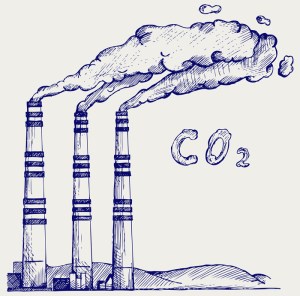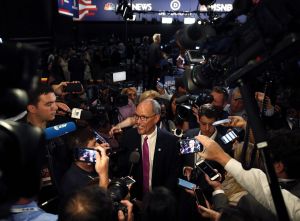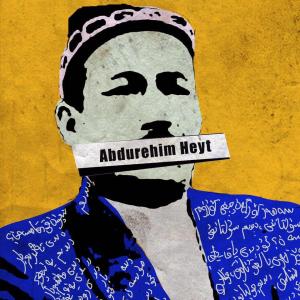For Pakistan’s educated urban populace, 11th May was supposed to be the day when their democracy came of age; the day when the will of the majority truly aligned itself with the interests of the nation.
A break from the feudal Pakistan Peoples’ Party, as expected, was completed. But the new, youthful generation also expected cricketer turned politican Imran Khan’s Pakistan Tehrik-e-Insaaf (PTI) to sweep the election. This, they felt, would mark a true shift from Pakistan’s corrupt politics, and words like tabdeeli (change) and insaaf (justice) floated around amidst the record voter turnout.
But democracies do not breed radical change. Instead, two time ex-Prime Minister Nawaz Sharif’s PML-N claimed a large victory in Pakistan’s national assembly. Imran Khan had to settle for second place. However, the passion with which Pakistan’s youth propelled Khan’s campaign should by no means ebb away into mere dejection.
PTI’s role in the national assembly, while unclear in such early days, will not be entirely negligible. Universal suffrage is not a democracy’s only component. Rather, the national assembly, of which PTI has a large chunk, will make decisions in a democratic manner, with significant influence from PTI.
Khan’s accession to power, albeit limited, was on the back of his anti-corruption campaign. Corruption has plagued Pakistan’s political system at all levels. And while Khan may not be able to credit himself with the title of Prime Minister, he will have enough political power to challenge the high level corruption that he promised to dismiss. Khan will have to heavily scrutinize one particular culprit, the new Prime Minister, Nawaz Sharif.
Nawaz Sharif is proven in the economic field. He hopes to achieve economic development and revolutionize the country’s infrastructure. While his claims to build bullet trains may seem an odd juxtaposition in a country where one third of the population lives below the poverty line, his focus on micro-finance will certainly help lift Pakistan’s economy. His infrastructure policies could increase geographic mobility and thereby increase job opportunities in the areas other than largely overcrowded megacities, notably Karachi.
Sharif, during his previous tenures in power, had envisioned Pakistan as the next South Korea. He sought to privatize industry and form a capitalist-style economy. During his 1990s reign, his policies had helped Pakistan’s wavering economy grow, and GDP growth rate exceeded 7%. 2013 is another trial for the economy, and Sharif’s experienced hand will be useful in tackling the falling GDP growth figures.
Sharif won the vote primarily from the province of Punjab, and many criticize him for previously not extending his development to Baluchistan, Khyber Pakhtunkwa or Sindh. However, this time around, he has made bold statements about providing medical colleges and universities in Sindh, as well as a modern metro bus system for urban metropolis Karachi. Khan’s opposition may be the perfect force to keep Sharif honest.
All those swept by Khan’s tsunami were very much attracted by his criticism of the political establishment, his own famed cult, and his populist diction. What structural changes he can implement are yet to be seen. On this note, Khan has a major opportunity to prove his worth, specially in Khyber Pakhtunkwa where he won an overwhelming majority. Now Khan has no reason to complain for a lack of opportunity; and after gaining experience in the technicalities of the National Assembly, perhaps Pakistan will be willing to give him a leap of faith come 2018.
A key component of Sharif’s premature victory speech on Saturday evening was a call for reconciliation. He highlighted the importance for Pakistan to not further factionalize politics and try and work together for the progress of the nation. Khan and Sharif, in theory, have several points to agree upon. Despite advocating a handful of idealistic notions, the two men should work together and build a movement towards regional trade. Both have stated they would negotiate with the Taliban, and set up conditions for investment, business and economic development. Such policies need to see tangible results. This development will not come inevitably, but needs to be supported by good diplomatic ties with Pakistan’s neighbours, i.e. India, China, Iran and Afghanistan. Khan should push to make his educational aims a reality. This would provide skilled labour in Pakistan’s extensive and young labour market. An educated and employed youth would be less driven to radical and extremist groups, in turn creating a safer environment (suitable to investment) for a country marred by violence.
While educating the masses and containing violence are long term aims, the change that Pakistan required has already arrived. Pakistan witnessed the largest voter turnout in its history. People came out in defiance of the serious Taliban threat, and the election succeeded in making a defeatist generation politically active. 11th May also marked a landmark day as Pakistan completed the first democratic turnover-one elected government to another-since the country’s independence in 1947.
Revolutions do not occur under a democratic framework, and Khan’s proposed ‘tsunami’ may have to wait. However, in sacrificing radical change, Pakistan has preserved its young democracy, that, with incremental growth and timely change, will inevitably lead Pakistan forward on her path towards prosperity.
- Sameer Tayebaly
Visuals/Photograph by Khaula Jamil




